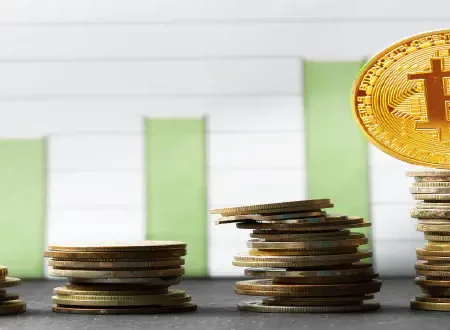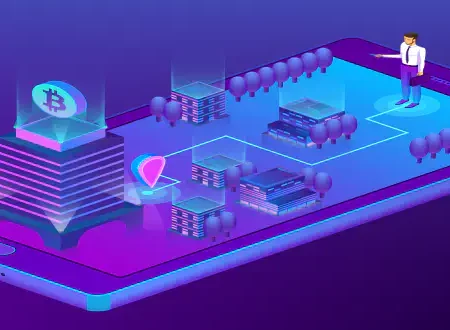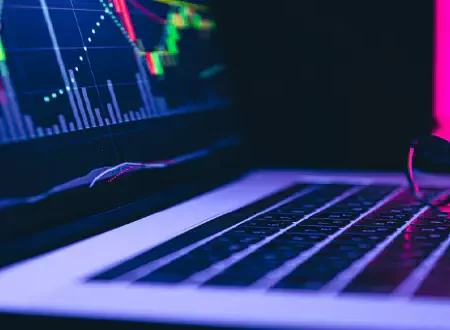Bitcoin mining is a process that involves the solving of complex mathematical problems using powerful computers. It is essential for the functioning and security of the Bitcoin network. In this article, we will explore the concept of Bitcoin mining, its importance, and how it works.
Bitcoin is a decentralized digital currency that is not controlled by any central authority. It operates on a peer-to-peer network, where transactions are verified by participants called miners. These miners use their computational power to solve mathematical problems and confirm the validity of transactions.
Bitcoin mining is often compared to gold mining, as both involve the process of extracting a limited resource. However, instead of physical labor and excavation, Bitcoin mining requires computational power and energy.
Miners compete with each other to solve a mathematical problem, known as a hash function, using their computers. The first miner to solve the problem gets to add a new block of verified transactions to the blockchain, the public ledger that records all Bitcoin transactions.
The Definition of Bitcoin Mining
Bitcoin mining is the process of validating transactions on the Bitcoin network and adding them to the blockchain. It is an essential component of the decentralized nature of Bitcoin and is the primary method through which new bitcoins are created and distributed.
At its core, Bitcoin mining involves using specialized hardware to solve complex mathematical problems. Miners compete with each other to find the solution to these problems, and the first miner to solve it is rewarded with a certain amount of bitcoins.
How Bitcoin mining works
- Transaction Validation: Whenever a Bitcoin transaction is made, it needs to be validated by the network to ensure its legitimacy. Miners play a crucial role in this process by confirming the transaction details and checking if the sender has sufficient funds to make the transaction.
- Hashing: To add a new block to the blockchain, miners need to find a specific hash value that meets certain criteria. This involves repeatedly hashing different combinations of data until the desired hash is found. This process requires computational power and is often referred to as proof-of-work.
- Block Creation: Once a miner finds the correct hash value, they create a new block containing the validated transactions. This block also includes the hash value of the previous block, forming a chain-like structure. The miner then broadcasts the new block to the network for verification by other participants.
- Consensus and Chain Confirmation: Other miners in the network validate the new block by performing the same hashing process. Once the majority of miners validate the block, it is considered confirmed. Confirmation of a block adds it to the blockchain, making it a permanent part of the transaction history.
- Reward: The miner who successfully mines and adds a block to the blockchain is rewarded with newly minted bitcoins. These newly created bitcoins, along with transaction fees paid by users, serve as the incentive for miners to continue validating transactions and securing the network.
Bitcoin mining difficulty
The difficulty of mining Bitcoins adjusts approximately every two weeks to maintain a consistent block generation time of around 10 minutes. As more miners join the network and more computational power is dedicated to mining, the difficulty increases to ensure that blocks are not generated too quickly.
The impact of Bitcoin mining
Bitcoin mining plays a crucial role in the security and integrity of the Bitcoin network. By requiring miners to solve complex mathematical problems, it ensures that no single entity can manipulate the network or double-spend coins. Additionally, mining supports the decentralized nature of Bitcoin by distributing power and control among the participants.
However, Bitcoin mining also requires significant amounts of energy and contributes to environmental concerns due to the electricity consumed by mining operations. Efforts are being made to develop more energy-efficient mining methods and alternative consensus mechanisms to address these concerns.
Conclusion
Bitcoin mining is the process of validating transactions on the decentralized Bitcoin network, adding them to the blockchain, and creating new bitcoins as a reward. It involves solving complex mathematical problems using specialized hardware and plays a crucial role in maintaining the security, integrity, and decentralization of the network.
How Does Bitcoin Mining Work?
Bitcoin mining is the process by which new bitcoins are created and transactions are verified on the blockchain.
Bitcoin mining involves solving complex mathematical problems using powerful computers. Miners compete with each other to find a solution to these problems, and the first one to find a solution is rewarded with a certain amount of bitcoins. This process is known as proof of work immediate edge.
1. Blockchain
The blockchain is a public ledger that contains all the transactions ever made with bitcoins. It is a decentralized database that is constantly updated by miners. Each block in the blockchain contains a list of transactions and a reference to the previous block.
2. Mining Nodes
Miners are the nodes in the Bitcoin network that validate and confirm transactions. They do this by solving mathematical problems and adding the verified transactions to the blockchain.
3. Hashing
Hashing is a process that converts an input of any length into a fixed-size string of characters. Bitcoin miners use special algorithms called hash functions to transform the input data into a hash. This hash is then used to validate the transactions and ensure the integrity of the blockchain.
4. Proof of Work
Proof of work is a consensus algorithm used by Bitcoin to confirm transactions and prevent double-spending. It requires miners to solve mathematical puzzles by repeatedly guessing a random number until they find a solution that meets certain criteria.
5. Mining Difficulty
The mining difficulty is a measure of how difficult it is to find a solution to the mathematical puzzles. As more miners join the network, the difficulty increases to maintain a constant rate of new bitcoins being created. The mining difficulty is adjusted every 2016 blocks to ensure that a new block is added to the blockchain approximately every 10 minutes.
6. Block Reward
The block reward is the amount of bitcoins that miners receive as a reward for finding a solution to the mathematical puzzle. Currently, the block reward is 6.25 bitcoins per block, but it halves approximately every four years. This process is known as the Bitcoin halving.
7. Mining Pools
Mining pools are groups of miners who work together to increase their chances of finding a solution to the mathematical puzzles. They combine their computing power and share the block reward, proportional to the amount of work contributed by each miner.
8. Energy Consumption
Bitcoin mining requires a significant amount of computational power, which consumes a lot of electricity. As a result, it has been criticized for its environmental impact. However, efforts are being made to develop more energy-efficient mining solutions.
| Bitcoin mining | Process of creating new bitcoins and verifying transactions |
| Blockchain | Public ledger that contains all bitcoin transactions |
| Mining Nodes | Miners who validate and confirm transactions |
| Hashing | Process of converting data into fixed-size hash |
| Proof of Work | Consensus algorithm that requires solving mathematical puzzles |
| Mining Difficulty | Measure of how difficult it is to find a solution |
| Block Reward | Amount of bitcoins received for finding a solution |
| Mining Pools | Groups of miners who work together |
| Energy Consumption | High computational power and electricity usage |
The Role of Miners in the Bitcoin Network
Miners play a crucial role in the operation of the Bitcoin network. They are responsible for validating transactions, adding them to the blockchain, and securing the network from attacks.
Here’s a breakdown of the role of miners in the Bitcoin network:
- Validation of transactions: Miners validate transactions by ensuring that they comply with the network’s rules and that the sender has sufficient funds to make the transaction. They verify the digital signatures and confirm the transaction’s authenticity.
- Addition of transactions to the blockchain: Once a transaction is validated, miners compete to solve a complex mathematical problem called a “proof-of-work” algorithm. The first miner to solve the problem adds a new block to the blockchain, which includes the validated transaction. This process is known as mining and requires significant computational power.
- Securing the network: The decentralized nature of the Bitcoin network relies on miners to secure the network from attacks. In order to alter or reverse a transaction, an attacker would need to control more than 51% of the total mining power, making it highly impractical and resource-intensive.
Miners are incentivized to participate in the network through block rewards and transaction fees. When a miner successfully adds a new block to the blockchain, they are rewarded with a certain amount of newly minted bitcoins. Additionally, users have the option to include transaction fees, which are paid to the miners for prioritizing their transactions.
Overall, miners play a critical role in maintaining the functionality and security of the Bitcoin network. Without miners, the network would be vulnerable to attacks and unable to process transactions effectively.
The Basics of Bitcoin Mining
Bitcoin mining is the process of verifying and recording transactions on the Bitcoin blockchain. This process is crucial for maintaining the integrity of the network and enabling new bitcoins to enter circulation. In this article, we will explore the basics of Bitcoin mining and how it works.
What is Bitcoin mining?
Bitcoin mining is the computational process of solving complex mathematical problems to validate and add new blocks to the Bitcoin blockchain. Miners use specialized hardware and software to compete against each other in solving these mathematical problems, and the first miner to find a valid solution is rewarded with newly minted bitcoins.
How does Bitcoin mining work?
Bitcoin mining involves a combination of computational power and luck. Miners use powerful hardware called mining rigs to perform complex calculations that validate transactions. These calculations require miners to find a specific hash value that meets certain criteria.
Miners start by grouping together a batch of unconfirmed transactions, known as a block. They then use their computing power to solve a mathematical algorithm known as a hash function. The goal is to find a hash value that starts with multiple zeros.
Miners achieve this by continuously changing a random value, known as a nonce, in the hash function until they find a hash value that meets the necessary criteria. Once a miner discovers the correct hash value, they broadcast it to the network, and other miners verify its validity.
Upon validation, the new block is added to the Bitcoin blockchain, ensuring the transaction’s immutability. The miner who successfully mined the block is rewarded with a certain number of bitcoins, along with transaction fees.
Why is Bitcoin mining important?
Bitcoin mining is essential for maintaining the security and integrity of the Bitcoin network. It ensures that transactions are validated, recorded, and cannot be tampered with. Additionally, mining serves as a mechanism for new bitcoins to be introduced into circulation.
Furthermore, Bitcoin mining plays a role in decentralization. The mining process is performed by a network of independent miners, preventing any single entity from having too much control over the network. This decentralized nature is one of the fundamental characteristics of Bitcoin.
Conclusion
Bitcoin mining is a crucial component of the Bitcoin network. It involves the verification and adding of transactions to the blockchain using specialized hardware and software. Mining is an important process for maintaining the security, decentralization, and integrity of the network, while also incentivizing miners with newly minted bitcoins.
Understanding the basics of Bitcoin mining helps provide insights into the intricate workings of the cryptocurrency and its underlying technology.
Understanding Blockchain Technology
Blockchain technology is the underlying concept behind cryptocurrencies like Bitcoin. It is a decentralized and transparent ledger that records transactions across multiple computers or nodes. This technology has the potential to revolutionize various industries by providing secure, immutable, and efficient solutions.
How does blockchain work?
Blockchain operates on a peer-to-peer network, where each node maintains a copy of the entire blockchain. When a new transaction is initiated, it is broadcasted to all the nodes in the network.
1. Verification and Block Creation: Miners (nodes with high computational power) verify the transaction by solving a complex mathematical problem. Once the transaction is verified, it is combined with other validated transactions to form a new block.
2. Adding the Block to the Blockchain: The new block is added to the existing blockchain, creating a chain of blocks. Each block contains a reference to the previous block, forming a linked structure.
3. Consensus Mechanism: To maintain the integrity of the blockchain, consensus mechanisms like Proof of Work (PoW) or Proof of Stake (PoS) are used. These mechanisms ensure that all the nodes agree on the validity of the transactions and prevent malicious activities.
Benefits of Blockchain Technology:
- Transparency: Transactions recorded on the blockchain are visible to all participants, improving trust and reducing the need for intermediaries.
- Security: The decentralized nature of blockchain makes it highly secure against hacking and fraud. The use of cryptographic algorithms ensures the integrity and confidentiality of data.
- Efficiency: By eliminating intermediaries and enabling direct peer-to-peer transactions, blockchain reduces costs and speeds up the process.
- Immutable: Once a transaction is recorded on the blockchain, it cannot be tampered with or altered, providing a permanent and auditable history.
Use Cases of Blockchain Technology:
- Finance: Blockchain can revolutionize the financial industry by providing faster and more secure cross-border transactions, removing the need for intermediaries.
- Supply Chain Management: By tracking the movement of goods and verifying their authenticity, blockchain can enhance transparency and traceability in supply chains.
- Healthcare: Blockchain can improve the secure sharing of patient data, enable interoperability between healthcare systems, and streamline medical record management.
- Voting: Blockchain can ensure the integrity and transparency of elections, making the voting process more secure and reducing fraud.
Blockchain technology has the potential to revolutionize various industries and transform the way we conduct transactions. Its decentralized and transparent nature provides increased security, efficiency, and trust. As the technology continues to evolve, it is likely to find more applications and drive further innovation in different sectors.
The Process of Verifying Bitcoin Transactions
Bitcoin transactions are verified through a process known as Bitcoin mining. This process ensures that transactions are secure, accurate, and recorded in the blockchain. Here is an overview of how the verification process works:
- Transaction Initiation: A user initiates a Bitcoin transaction by sending bitcoins from their digital wallet to another user’s wallet. The transaction includes details such as the sender’s public key, the recipient’s public key, and the number of bitcoins being transferred.
- Transaction Propagation: Once the transaction is initiated, it is broadcasted to the Bitcoin network. Nodes, which are computers participating in the Bitcoin network, receive the transaction and add it to their memory pool.
- Block Creation: Miners, specialized participants in the Bitcoin network, collect a group of transactions from the memory pool and create a new block. A block is a collection of transactions that are linked together using cryptography.
- Proof-of-Work: To add a new block to the blockchain, miners must solve a complex mathematical problem known as a cryptographic puzzle. This process is called proof-of-work. Miners compete with each other to solve the puzzle, and the first miner to find a solution gets to add the new block to the blockchain.
- Block Verification: Once a miner solves the cryptographic puzzle, they broadcast their solution to the network. Other miners then verify the solution to ensure its correctness. This includes verifying that the transactions within the block are valid, the solution to the puzzle is correct, and other consensus rules are followed.
- Block Addition: Once the solution is verified by other miners, the new block is added to the blockchain. This involves updating the previous block’s reference in the new block and calculating a new block hash.
The process of verifying Bitcoin transactions through mining ensures that the transactions are legitimate and secure. It also adds new blocks to the blockchain, which serves as a decentralized ledger of all Bitcoin transactions. This verification process is crucial for maintaining the integrity and transparency of the Bitcoin network.
The Benefits of Bitcoin Mining
Bitcoin mining offers several benefits, making it an attractive endeavor for many individuals and organizations. Here are some of the key advantages of engaging in bitcoin mining:
1. Financial Rewards
- Bitcoin mining can be a highly profitable business. Miners are rewarded with new bitcoins for their contributions to the network. These rewards serve as incentives for miners to dedicate their computational power to secure the blockchain.
- As the value of bitcoin increases, miners can potentially earn significant profits by selling the mined bitcoins.
2. Transaction Verification
Bitcoin mining plays a crucial role in verifying and securing transactions on the blockchain.
- Miners validate the authenticity of transactions by solving complex mathematical puzzles. This process ensures that transactions are legitimate, preventing fraud and double-spending.
- By participating in mining, individuals contribute to the overall security and stability of the Bitcoin network.
3. Decentralization
Bitcoin mining helps maintain the decentralized nature of the cryptocurrency.
- Unlike traditional banking systems where a central authority controls the transactions, the Bitcoin network relies on a decentralized network of miners to validate and record transactions.
- This decentralization ensures that no single entity has absolute control over the network, making it resistant to censorship and manipulation.
4. Technological Advancement
Bitcoin mining drives innovation and technological advancement in the field of computer hardware and software.
- Miners require powerful hardware, such as specialized mining rigs, to solve the complex mathematical problems. This demand for high-performance computing devices pushes the boundaries of technology.
- Additionally, mining software and algorithms continually evolve to increase efficiency and optimize energy consumption.
5. Learning Opportunities
Engaging in bitcoin mining offers individuals the chance to learn about blockchain technology and the inner workings of cryptocurrencies.
- Miners gain insights into how transactions are processed, how consensus is achieved, and the importance of network security.
- This knowledge can be valuable for those interested in pursuing careers or entrepreneurial ventures in the blockchain industry.
In conclusion, bitcoin mining provides financial rewards, contributes to transaction verification, promotes decentralization, drives technological advancement, and offers learning opportunities. However, it is important to consider the associated costs and potential risks before diving into the world of bitcoin mining.
Incentives for Miners
Bitcoin miners play a crucial role in maintaining the security and integrity of the Bitcoin network. In order to compensate miners for their hard work and incentivize them to continue mining, the Bitcoin protocol provides several incentives.
Block Rewards
One of the main incentives for miners is the block reward. Every time a miner successfully adds a new block to the blockchain, they are rewarded with a certain amount of newly minted bitcoins. This reward serves as a form of payment for the miner’s computational power and electricity expenses.
The block reward is halved approximately every four years in a process known as the “halving”. This reduction in the block reward is built into the Bitcoin protocol and is designed to control the supply of new bitcoins, creating scarcity and increasing their value over time.
Transaction Fees
In addition to the block reward, miners also receive transaction fees for including transactions in the blocks they mine. When a user sends a Bitcoin transaction, they typically include a small fee as an incentive for miners to prioritize and include their transaction in the next block.
Transaction fees vary depending on the congestion of the Bitcoin network. During times of high demand, when many users are sending transactions, fees tend to be higher. Miners prioritize transactions with higher fees, as they want to maximize their earnings.
Security and Network Consensus
Mining is not just about financial incentives. By participating in the validation and verification of transactions, miners contribute to the security and consensus of the Bitcoin network. Miners help prevent double-spending attacks and ensure that all transactions are legitimate. Their efforts maintain the decentralization and trustworthiness of the network, which benefits all Bitcoin users.
Additionally, miners have the opportunity to influence the development of the Bitcoin protocol. Through mechanisms such as the BIP (Bitcoin Improvement Proposal) process, miners can propose and implement changes to the protocol. This allows miners to have a say in shaping the future of Bitcoin.
Competition and Mining Pools
The competitive nature of mining also serves as an incentive for miners. As more miners join the network, the difficulty of mining increases, requiring more computational power to solve the complex mathematical problems. This competition encourages miners to continually invest in more powerful and energy-efficient mining hardware to stay ahead.
Many miners also choose to join mining pools, where they combine their computational power and share the rewards proportionately. By pooling resources, miners increase their chances of earning rewards more regularly, especially for small-scale miners who may not have the resources to compete individually.
| Incentive | Description |
|---|---|
| Block Rewards | Rewards for successfully adding a new block to the blockchain. |
| Transaction Fees | Fees paid by users for including transactions in blocks. |
| Security and Network Consensus | Maintaining the security and integrity of the Bitcoin network. |
| Competition and Mining Pools | Competition among miners and the option to join mining pools. |
Increased Security and Decentralization
Bitcoin mining plays a key role in providing increased security and decentralization to the Bitcoin network. Let’s explore how it achieves these two important aspects.
Security
Bitcoin mining ensures the security of the network by utilizing a cryptographic algorithm called SHA-256. Miners compete to solve a complex mathematical puzzle, also known as a proof-of-work, in order to add a new block of transactions to the blockchain. This process involves performing numerous calculations until a specific hash is found that meets certain criteria.
The decentralized nature of the mining process ensures that no single entity can gain control over the network. As more miners participate in the mining process, the difficulty level of the puzzle increases, making it even more secure. This makes it extremely difficult for any malicious actor to alter transactions or reverse blocks once they have been added to the blockchain.
Furthermore, the blockchain acts as a public ledger that is distributed across thousands of computers, known as nodes, which verify and validate each transaction. This eliminates the need for centralized intermediaries, such as banks or payment processors, and reduces the risk of fraud or hacking. Each block added to the blockchain is also linked to the previous block using cryptographic hashes, creating an immutable record of all transactions.
Decentralization
Decentralization is a core principle of Bitcoin mining. By relying on a network of individual miners, Bitcoin avoids centralized control and prevents any single entity from having too much power. This decentralization is achieved through the use of a consensus mechanism called proof-of-work.
In a proof-of-work system, miners must compete to solve a mathematical puzzle, as mentioned earlier. The first miner to solve the puzzle and add a new block to the blockchain is rewarded with newly minted bitcoins. This incentivizes miners to participate in the network and maintain its security.
The decentralized nature of Bitcoin mining also prevents censorship and ensures that anyone can participate in the network. Unlike traditional financial systems, where individuals and businesses may be denied access based on their location or other arbitrary factors, Bitcoin is accessible to anyone with an internet connection and the necessary hardware.
Additionally, the decentralization of Bitcoin mining helps to prevent any single point of failure. If a miner or group of miners were to go offline or act maliciously, the network would continue to operate and validate transactions thanks to the redundancy provided by other miners.
Overall, Bitcoin mining plays a crucial role in enhancing the security and decentralization of the Bitcoin network. By relying on a decentralized network of miners and using cryptographic algorithms, Bitcoin ensures the integrity of transactions and prevents any single entity from having too much control. This makes it a robust and resilient digital currency, appealing to those seeking a more secure and decentralized financial system.
The Challenges of Bitcoin Mining
Bitcoin mining, although a profitable venture, also presents several challenges that miners need to overcome. These challenges include:
1. High Energy Consumption
Bitcoin mining requires a significant amount of computational power, which in turn requires a large amount of energy. The process of mining involves solving complex mathematical problems, and as the difficulty of these problems increases, so does the energy consumption. This can be a challenge for miners as it increases their operational costs and environmental impact.
2. Expensive Hardware
In order to mine bitcoins effectively, miners need to invest in specialized hardware known as ASICs (Application-Specific Integrated Circuits). These ASICs are designed specifically for mining bitcoins and are much more powerful than traditional computer processors. However, they come with a hefty price tag, which can be a barrier for entry for many potential miners.
3. Mining Pool Concentration
The mining process is often conducted by mining pools, which are groups of miners who combine their computational power to increase their chances of successfully mining a block. However, there is a growing concern about the concentration of mining power in these pools. Some pools have gained significant control over the network, which can potentially lead to centralization and manipulation of the Bitcoin system.
4. Intense Competition
As more miners join the network, the competition to mine a block becomes increasingly intense. Miners need to constantly upgrade their hardware and invest in more powerful equipment to keep up with the competition. This can be challenging for small-scale miners who may not have the resources to constantly upgrade their equipment.
5. Regulatory Uncertainty
The regulatory environment for Bitcoin mining is still evolving in many countries. This can create uncertainty for miners, as they may face changes in tax regulations or restrictions on their operations. It is important for miners to stay updated on the legal and regulatory landscape to ensure compliance and avoid legal issues.
6. Difficulty Adjustments
The difficulty of mining bitcoins is adjusted every 2016 blocks, or approximately every two weeks, to ensure that the average time between blocks remains around 10 minutes. This adjustment can pose a challenge for miners, as it may render their existing hardware less efficient or even obsolete. Miners need to constantly monitor the network difficulty and make necessary adjustments to their operations.
In conclusion, while Bitcoin mining can be profitable, it is not without its challenges. High energy consumption, expensive hardware, mining pool concentration, intense competition, regulatory uncertainty, and difficulty adjustments are some of the challenges that miners need to navigate in order to succeed in the mining industry.
Energy Consumption and Environmental Impact
Bitcoin mining is notorious for its high energy consumption and its potential environmental impact. This is primarily due to the process of solving complex mathematical problems to validate transactions and create new bitcoins. The energy-intensive nature of mining has raised concerns about its sustainability and contribution to climate change.
According to research, the energy consumption of the Bitcoin network is comparable to that of some small countries. As of 2021, it is estimated that Bitcoin mining uses around 128.84 terawatt-hours (TWh) of energy annually. To put this into perspective, this is more energy than some countries like Argentina and the Netherlands consume in a year.
The energy consumption of Bitcoin mining mainly comes from the computational power required to solve the cryptographic puzzles. Miners use specialized hardware called ASICs (Application-Specific Integrated Circuits) to perform these calculations. ASICs are designed to maximize computational efficiency, but they still require a significant amount of electricity to operate.
One of the primary concerns regarding Bitcoin mining is its environmental impact, especially its contribution to carbon emissions. The energy used in mining is often generated from fossil fuels, such as coal and natural gas, which release greenhouse gases into the atmosphere when burned. This has raised concerns about the sustainability of Bitcoin’s energy consumption and its potential role in accelerating climate change.
Efforts are being made to mitigate the environmental impact of Bitcoin mining. Some miners are transitioning to renewable energy sources like solar and wind power, which can help reduce carbon emissions. Additionally, there are initiatives to develop more energy-efficient mining technologies to decrease the energy consumption of the network.
It is worth noting that not all cryptocurrencies have the same level of energy consumption as Bitcoin. Some alternative cryptocurrencies, such as Ethereum, are exploring solutions like proof-of-stake (PoS) consensus mechanisms, which require less energy compared to the proof-of-work (PoW) mechanism used by Bitcoin. These developments aim to address the energy consumption and environmental concerns associated with cryptocurrency mining.
| Country | Annual Energy Consumption (TWh) |
|---|---|
| Bitcoin Network | 128.84 |
| Argentina | 125 |
| Netherlands | 121 |
Q&A:
What is bitcoin mining?
Bitcoin mining is the process of verifying and adding transaction records to the public ledger called the blockchain. Miners compete with each other to solve complex mathematical problems, and the first miner to solve the problem gets to add the block of transactions to the blockchain and is rewarded with newly created bitcoins.
How does bitcoin mining work?
Bitcoin mining works by using specialized hardware and software to solve complex mathematical problems. Miners collect pending transactions into blocks, and they compete with each other to be the first to find a nonce (a random number) that, when combined with the block data, produces a hash with a specific number of leading zeros. The miner who finds the correct nonce earns the right to add the block to the blockchain and receives a reward in the form of newly minted bitcoins.
Why is bitcoin mining necessary?
Bitcoin mining is necessary to secure the Bitcoin network and process transactions. Miners ensure that transactions are valid and prevent double spending. The process of mining also creates new bitcoins and incentivizes miners to participate in the network and keep it running smoothly.
How long does it take to mine a bitcoin?
The time it takes to mine a bitcoin can vary depending on several factors such as the mining hardware’s computational power, the network’s difficulty level, and the miner’s luck. On average, it takes about 10 minutes to mine a single bitcoin, but it could take longer or shorter depending on these factors.
What are the costs of bitcoin mining?
The costs of bitcoin mining include the upfront investment in mining hardware, electricity costs to run the mining equipment, cooling equipment to maintain optimal operating temperatures, internet connection fees, and ongoing maintenance expenses. These costs can vary depending on the miner’s location, electricity rates, and the size of the mining operation.
Can I mine bitcoin on my personal computer?
Mining bitcoin on a personal computer is not recommended as the computational power required to mine profitably is extremely high. Specialized mining hardware called ASICs (Application-Specific Integrated Circuits) are necessary to compete with other miners and have a chance at earning a reward. Personal computers are not efficient enough to mine bitcoin effectively.
What happens when all bitcoins are mined?
When all bitcoins are mined, which is estimated to happen in the year 2140, miners will no longer receive block rewards for mining. However, they will still earn transaction fees for processing transactions. This shift from block rewards to transaction fees is expected to sustain the mining ecosystem and ensure the security and stability of the Bitcoin network.
Is bitcoin mining legal?
Bitcoin mining is legal in most countries, but there may be specific regulations and requirements in certain jurisdictions. It is important to check the legal status of bitcoin mining in your country to ensure compliance with local laws and regulations.
What is bitcoin mining and how does it work?
Bitcoin mining is the process by which new bitcoins are generated and transactions are verified and added to the blockchain. Miners use specialized hardware and solve complex mathematical problems to validate transactions and secure the network.
Why is bitcoin mining necessary?
Bitcoin mining is necessary to maintain the security and integrity of the Bitcoin network. Miners ensure that transactions are legitimate and prevent double-spending. They also introduce new bitcoins into circulation as a reward for their work.









Bitcoin mining is a fascinating concept that I find extremely intriguing. As a reader, I have always wanted to understand how this complex process actually works. This article did an excellent job of breaking down the concept of bitcoin mining in a way that is easy to understand. It was fascinating to learn that bitcoin mining involves solving complex mathematical equations to validate and verify bitcoin transactions. The miners use powerful computer systems to compete with each other, hoping to be the first to solve these equations. The winner is rewarded with new bitcoins as an incentive for their efforts. I appreciate that the article explained the importance of mining for the overall stability and security of the bitcoin network. It helped me understand why bitcoin mining is needed and how it prevents fraudulent transactions. Additionally, learning about the decentralization aspect of bitcoin mining was eye-opening. The fact that no central authority controls the network is one of the main reasons why bitcoin has gained so much popularity. The article’s explanation of the hardware requirements and energy consumption involved in bitcoin mining was also informative. It made me realize that mining is not an easy task and requires significant resources. However, the potential rewards make it a worthwhile endeavor for many miners. Overall, this article provided a comprehensive overview of bitcoin mining and answered many of my questions. It is written in a way that both beginners and more experienced readers can understand. I would highly recommend it to anyone interested in learning more about the fascinating world of bitcoin mining.
As a reader, I found this article on “Understanding the Concept of Bitcoin Mining” to be incredibly informative and eye-opening. The concept of Bitcoin mining was always something that intrigued me, but I never fully grasped the details until now. The article did an excellent job of explaining the process of Bitcoin mining in a way that was easy to understand even for someone who is not very tech-savvy. I appreciated the breakdown of complex terms and concepts into simpler terms, making it accessible to a wider audience. Learning about the decentralized nature of the Bitcoin network was fascinating. The fact that anyone can participate in mining and contribute to the verification of transactions is a key aspect of the cryptocurrency’s success. The article’s explanation of how miners solve complex mathematical problems to validate transactions and add them to the blockchain was concise and clear. I was also intrigued by the mention of mining pools and how they allow miners to combine their computational power for more efficient and profitable mining. The article’s focus on the environmental impact of Bitcoin mining was a thought-provoking addition. It highlighted the energy-intensive nature of the process and the need for more sustainable solutions in the future. Overall, this article provided a comprehensive overview of Bitcoin mining, shedding light on its intricacies and importance in the world of cryptocurrencies. I would recommend it to anyone looking to gain a better understanding of this complex yet captivating concept.
I found this article on “Understanding the Concept of Bitcoin Mining” very insightful and informative. As a female reader, I was initially hesitant to delve into the world of cryptocurrency, but this article explained the concept of Bitcoin mining in a way that was easy to understand. The author did a great job of breaking down the complex process into simpler terms. I now have a much better grasp on how Bitcoin mining works and the role it plays in the overall Bitcoin network. It was fascinating to learn about the decentralized nature of the mining process and how it contributes to the security and integrity of the cryptocurrency. The article also touched upon the environmental concerns associated with Bitcoin mining, which is something that I, as an environmentally conscious individual, greatly appreciate. It highlighted the energy consumption involved in the mining process and the potential impact on the environment. This raised my awareness about the need for more sustainable practices in the cryptocurrency industry. Additionally, the article provided some insights into the rewards and incentives for Bitcoin miners. It was interesting to learn about the block rewards and transaction fees that miners receive for their work. I now have a better understanding of the economic motivation behind mining and how it drives the continuous operation of the Bitcoin network. Overall, this article has expanded my knowledge on Bitcoin mining and its significance in the world of cryptocurrency. It has encouraged me to further explore this field and possibly even consider getting involved in Bitcoin mining myself. I appreciate the author’s effort in making this complex topic accessible to a wider audience. Thank you for this informative piece!
I find the concept of Bitcoin mining truly fascinating. It is amazing how computers actually solve complex mathematical problems to validate transactions on the Bitcoin network. The fact that these problems are interconnected and build on each other, forming a blockchain, adds an extra layer of complexity to the process. I believe Bitcoin mining serves two important purposes. First, it ensures the security and integrity of the Bitcoin network. By solving these mathematical problems, miners validate transactions and prevent any double-spending or fraudulent activities. This decentralized approach, where no single entity has control over the network, truly sets Bitcoin apart from traditional centralized systems. Secondly, Bitcoin mining is the way new Bitcoins are created and brought into circulation. This has created an incentive for miners, who invest in powerful hardware and compete with each other to solve these problems. The rewards they receive in the form of Bitcoins not only compensate them for their efforts but also contribute to the limited supply of Bitcoins, which in turn increases their value. I do understand that Bitcoin mining is not without its challenges. The competition among miners continues to increase, leading to the need for more powerful hardware and energy consumption. The environmental impact of Bitcoin mining is a concern that needs to be addressed, especially with the growing popularity of cryptocurrencies. In conclusion, Bitcoin mining is a crucial process that maintains the security and integrity of the Bitcoin network, while also serving as a means of creating new Bitcoins. It is a complex and ever-evolving field that requires significant computational power and resources. As a reader, I find it fascinating to delve into the technicalities and understand the underlying principles of this innovative concept.
Great article! As a regular reader of your blog, I was really excited to see an article on Bitcoin mining. This concept has always fascinated me, and your article does a great job of explaining it in a clear and concise manner. The way you break down the technical aspects of mining and the role of miners in securing the network is really helpful. I was particularly interested to learn about the process of solving complex mathematical problems to validate transactions and add them to the blockchain. It’s amazing how much computational power is required, and it’s impressive to see how miners are incentivized to participate in this process through the reward of newly minted Bitcoins. The article also does a fantastic job of explaining the importance of mining in maintaining the decentralized nature of Bitcoin. The fact that miners are distributed all over the world, and the difficulty adjustment mechanism ensures that new blocks are added to the blockchain approximately every 10 minutes, really highlights the robustness of the system. I also appreciated the mention of mining pools and how they allow individual miners to combine their resources and increase their chances of earning rewards. It’s really interesting to see how different individuals and organizations have come up with innovative ways to optimize their mining operations. Overall, I found this article to be an enlightening read that helped me better understand the concept of Bitcoin mining. Keep up the great work! I look forward to reading more articles on cryptocurrencies and blockchain technology in the future.
The concept of Bitcoin mining is quite intriguing and complex, but understanding it is essential for anyone interested in cryptocurrencies. As a female reader, I find the idea of Bitcoin mining empowering and fascinating. Bitcoin mining is the process through which new Bitcoins are created and transactions are verified. Miners use powerful computers to solve mathematical problems and add new blocks to the blockchain, which is like a digital ledger. This decentralized nature of Bitcoin mining is impressive, as it eliminates the need for a central authority and gives everyone the opportunity to participate. The environmental impact of Bitcoin mining is a concern for me as well. The energy consumed by the mining process is massive, and as a supporter of sustainable practices, I hope that the industry will find more eco-friendly solutions in the future. In addition to the environmental aspect, Bitcoin mining also has its financial incentives. Miners are rewarded with newly created Bitcoins and transaction fees. This aspect is intriguing because it offers an opportunity for individuals to earn money through their computational power. Overall, understanding the concept of Bitcoin mining is crucial for anyone looking to get involved in the world of cryptocurrencies. It is not only a way to create new Bitcoins, but also a way to verify transactions and contribute to the decentralized nature of the Bitcoin network. As a woman, I appreciate the empowerment that comes from being able to participate in this innovative technology.